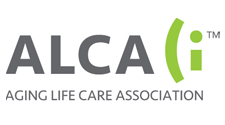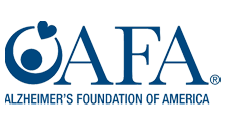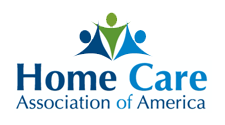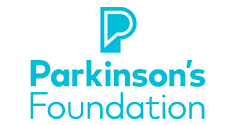RDH: Resources
Our mission is to create an environment of peace and serenity through quality, dependable, professional and consistent home health services.

Key Resources for Clients

Medicaid
Medicaid is a joint federal and state program that provides health coverage to low-income Americans. Adults may qualify for Medicaid if they are disabled or age 65 or older. Unlike Medicare, Medicaid covers various types of long-term care and home and community-based care services. However, applicants must meet stringent financial requirements to be approved for Medicaid coverage. Each state administers its own Medicaid program according to federal requirements, so the exact eligibility criteria vary. For more general information on the program, visit Medicaid.gov. To find information specific to your state’s Medicaid program, visit your state’s government website.

Medicare
There is more to Medicare than just Part A (hospital insurance) and Part B (medical insurance). If the person you are caring for is 65 or older and collecting Social Security retirement benefits, it is likely that they receive Medicare Part A for free and their Medicare Part B premiums are automatically deducted from the monthly benefits they receive from the Social Security Administration (SSA).
Part D prescription drug coverage is subsidized by Medicare through payments to private insurance companies who then fund part of the cost of prescription drugs. If your loved one has low income and limited assets, they may qualify for a Medicare Savings Program. Depending on the program they are eligible for, your loved one’s state of residence may help pay for Part A and/or Part B premiums as well as coinsurance, deductibles and copayments. Another program called Extra Help is also available to minimize costs associated with Part D prescription drug plan costs. These options may provide substantial cost savings.
AoA
The AoA administers many national programs and services for elders, including free health insurance counseling, legal assistance, elder abuse prevention and help with long-term care planning. The AoA also oversees a network of community-based organizations called Area Agencies on Aging (AAAs) and Aging and Disability Resource Centers (ADRCs) that offer in-person assistance with accessing these programs and services. AAAs are staffed by professionals who are knowledgeable about resources for seniors and their caregivers. They can walk you through specific eligibility requirements and even help prepare the necessary applications and gather supporting documentation for benefits. To find your local Area Agency on Aging, click HERE.
ADA
If your loved one has a disability, it may be helpful to learn about the Americans with Disabilities Act of 1990 (ADA). The ADA is a civil rights law that prohibits discrimination against disabled individuals in all aspects of public life, such as employment, state and federal government programs, transportation, public accommodations, telecommunications, and commercial facilities. The Department of Health and Human Services has created the ADA National Network to provide information, briefings and free publications on the regulations granting universal access to the disabled.
HIPAA
The Health Insurance Portability and Accountability Act of 1996 protects each person’s rights over their health care information. HIPAA set rules for health care providers, employers and health insurance plans to regulate who can view and receive patients’ sensitive medical information. This law also prohibits family members from viewing one another’s medical records, which can seriously complicate the task of helping an aging loved one manage their health care. Unless your loved one signs a HIPAA Release Form granting you permission to discuss their condition with physicians, you will be unable to access any information about their health. You can learn more about this law on the HIPAA website. To obtain HIPAA authorization forms, ask your loved one’s physician and file copies with every medical professional involved in their care to ensure you have access to crucial information.
NIH
Seniors typically take several prescription and over-the-counter medications. As a caregiver, it is important to be aware of what your loved one is taking and why, as well as the side effects and interactions these drugs can have. The National Library of Medicine, a part of the NIH, hosts a comprehensive online database of every drug approved by the Food and Drug Administration (FDA) called MedlinePlus. Consumers can use this database to search for information on medications, including active ingredients, uses, dosing recommendations, special precautions, side effects and interactions. MedlinePlus also features a database of this detailed information for herbal remedies and dietary supplements.
SSI
If your loved one’s Social Security benefits were earned through lower-paying jobs and these benefits are their only source of income, they may qualify for a larger monthly benefit from the SSA called Supplemental Security Income (SSI). The SSI program is operated by the federal government and provides seniors and blind or disabled individuals with monthly payments to supplement their income. SSI is a needs-based program, so applicants must meet certain income and asset requirements to be eligible. Eligibility for SSI is usually used as an indicator that individuals also qualify for other needs-based programs and benefits, such as Medicaid and the Supplemental Nutrition Assistance Program (SNAP).
US Reps.
Most congressmen and congresswomen in the House of Representatives also have staff specialists on elder affairs, programs and services and can provide both information and advocacy services. Contact information for all of your state’s representatives is available on the U.S. House of Representatives website.
US Senate
Every senator has a staff specialist on elder affairs, programs and services, who can both advise and advocate for benefits or services for you and your loved one. You can find contact information for both of your state’s senators using the U.S. Senate website.
Veteran Affairs
If your loved one is a military veteran or surviving spouse of a veteran, they may be entitled to several different benefits through the U.S. Department of Veterans Affairs. The VA offers health care services, long-term care services, pensions, disability compensation, burial benefits, and other benefits to eligible veterans and their qualifying family members. While the application and approval processes can be lengthy, the best place to start is locating a veteran’s discharge papers (also known as DD Form 214). This form is used by the VA to determine the nature of a veteran’s discharge or separation from active duty in the armed forces, one of the fundamental eligibility requirements for most VA benefits.
Dependable • Professional • Consistent
24/7 service. Same Day Appointments are Available.













